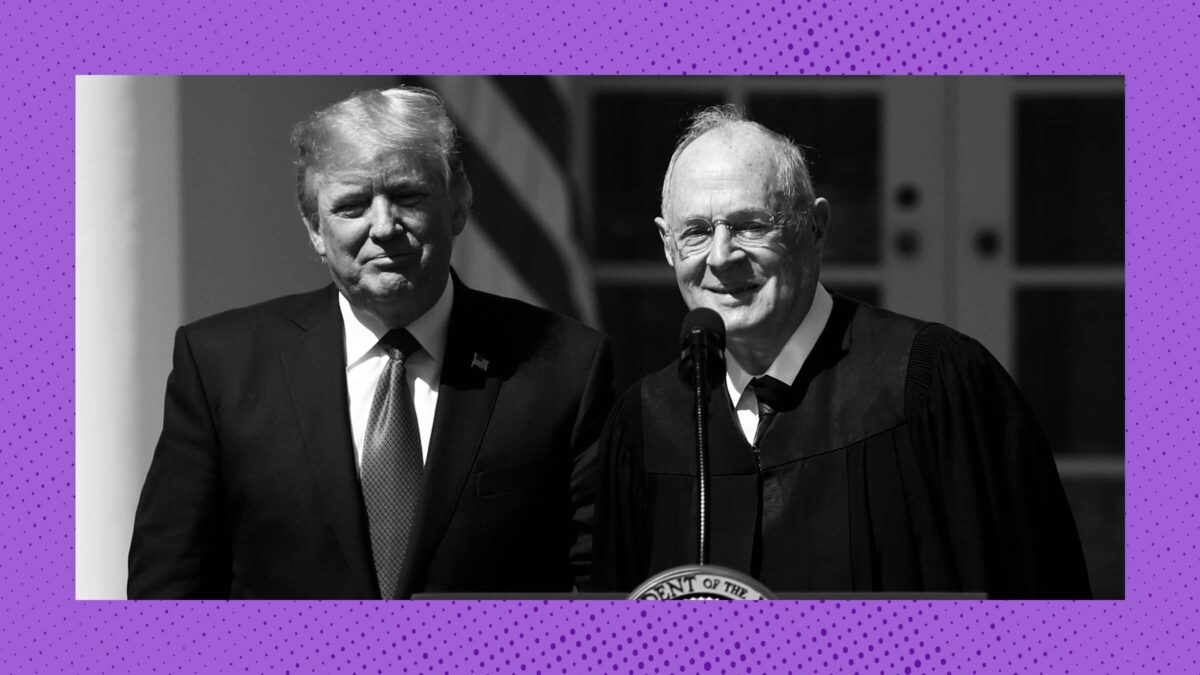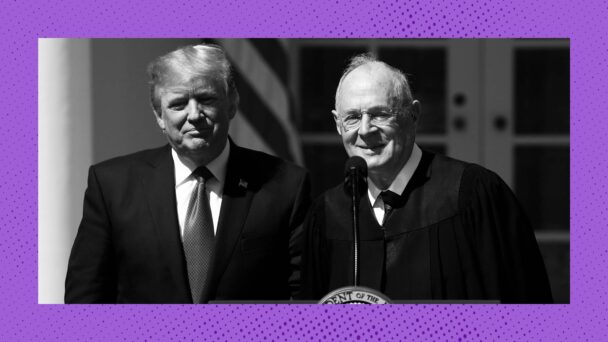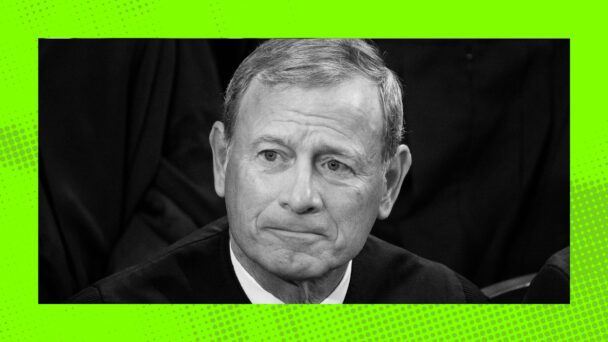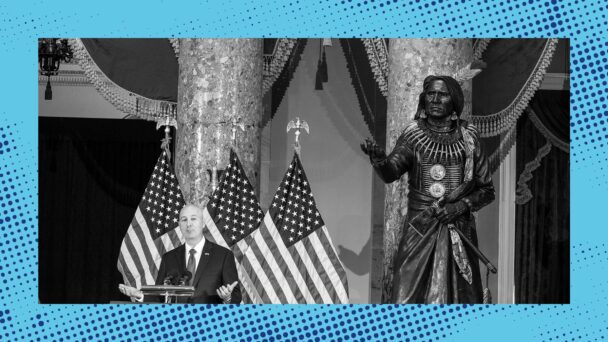During a recent sitdown with NPR, former Supreme Court Justice Anthony Kennedy stated that he was “very worried” about the country. Kennedy, who was appointed by President Ronald Reagan in 1988 and retired under President Donald Trump in 2018, is hitting the media circuit to promote his new memoir, Life, Law & Liberty. And in the soon-to-be-aired interview, he said that “democracy is not guaranteed to survive.”
One might think the antidemocratic danger to which Kennedy referred was Trump’s ongoing use of the military to seize control of cities with Black mayors. One might think Kennedy was referring to the Supreme Court okaying racial profiling in immigration raids, or letting Trump fire people he is explicitly legally prohibited from firing, or generally allowing the administration to ignore any law that gets in the way of its reactionary agenda.
But one would be mistaken. In an excerpt from the interview published over the weekend, Kennedy seemed troubled not by the loss of the Constitution, but the loss of civility—and especially between justices at his former place of employment.
“We live in an era where reasoned, thoughtful, rational, respectful discourse has been replaced by antagonistic, confrontational conversation,” he said. Kennedy fretted that “the idea of partisanship is becoming much more prevalent and more bitter,” even at the Court, which now “has to be asked to moderate and become much more respectful” in its opinions.
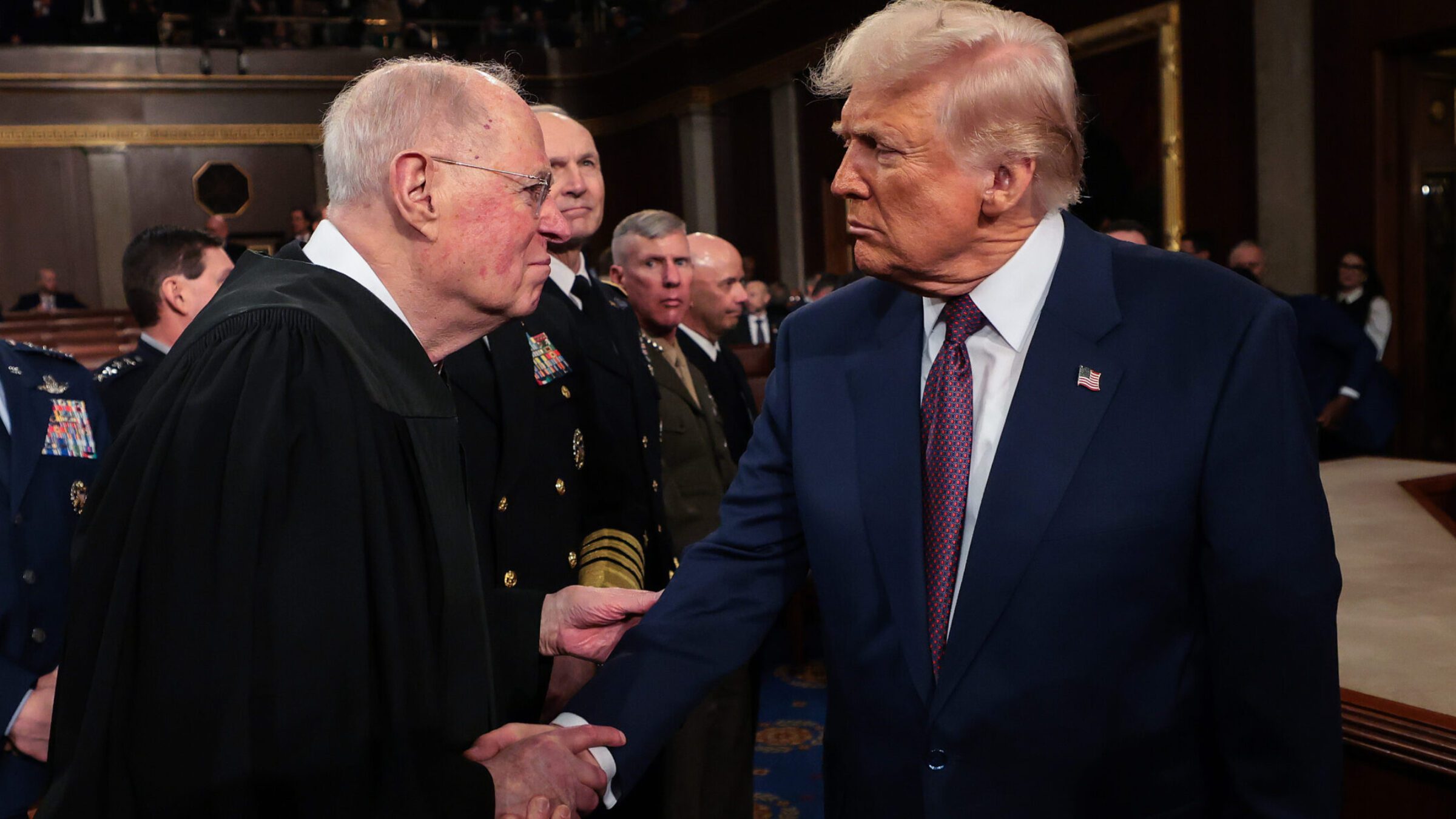
(Photo by Win McNamee/Getty Images)
Kennedy’s latest statements are consistent with concerns he raised 25 years ago in Bush v. Gore, in which five conservative justices voted to end a recount of presidential election ballots in Florida, thus handing the presidency to the Republican candidate, George W. Bush. Although Bush v. Gore was styled as a per curiam opinion, meaning it was unsigned and attributed to the whole Court, Kennedy took the lead in writing it. The four liberal justices dissented in four separate opinions. And Kennedy found those opinions distressing.
“The tone of the dissents is disturbing both on an institutional and personal level,” wrote Kennedy, in an internal memo to his colleagues. (After the death of Justice John Paul Stevens in 2019, the Library of Congress published documents from his archives that shed new light on deliberations from that era.) Justice Stephen Breyer’s dissent explicitly discussed the “damage” the Court’s decision would do to the country, while Stevens raised the harm Bush v. Gore would inflict on the Court’s reputation as “an impartial guardian of the rule of law.”
Kennedy believed this crossed a line. “The dissents, permit me to say, in effect try to coerce the majority by trashing the Court themselves, thereby making their dire, and I think unjustified, predictions a self-fulfilling prophecy,” he said in the memo. For Kennedy, intervening in a democratic election and gifting the White House to a political ally was a lesser offense than criticizing that intervention.
Kennedy’s longstanding preoccupation with politeness provides clarity as to the real basis of his recently-professed worries. It would have been hard to reconcile his purported concern for the fate of democracy with his conduct as a Supreme Court justice, since he repeatedly delivered major wins to wealthy white conservatives in their quest for control over the rest of the country. Not only did Kennedy author Bush v. Gore, for instance, he also authored Citizens United v. Federal Election Commission, the 2010 decision that gave First Amendment protections to unlimited corporate spending in elections. And although Republicans may never forgive him for breaking ranks on gay rights, Kennedy provided critical fifth votes in decisions that turbocharged Second Amendment protections for guns and neutralized the Reconstruction Amendments’ protections for voters of color.
Kennedy is also largely to blame for the Court’s current composition. In April 2017, after Kennedy administered the oath of office to his former clerk, Justice Neil Gorsuch, he privately met with Trump and asked the president to consider another former Kennedy clerk for a future Supreme Court vacancy: Brett Kavanaugh.
For someone who is ostensibly worried about the future of the American experiment, Kennedy has played a significant role in eroding it. But his tone-policing reveals that although he said that “democracy” was not guaranteed to survive, what he meant was “decorum.” He has no problem with democratic collapse. He just wishes people weren’t so rude about it.
